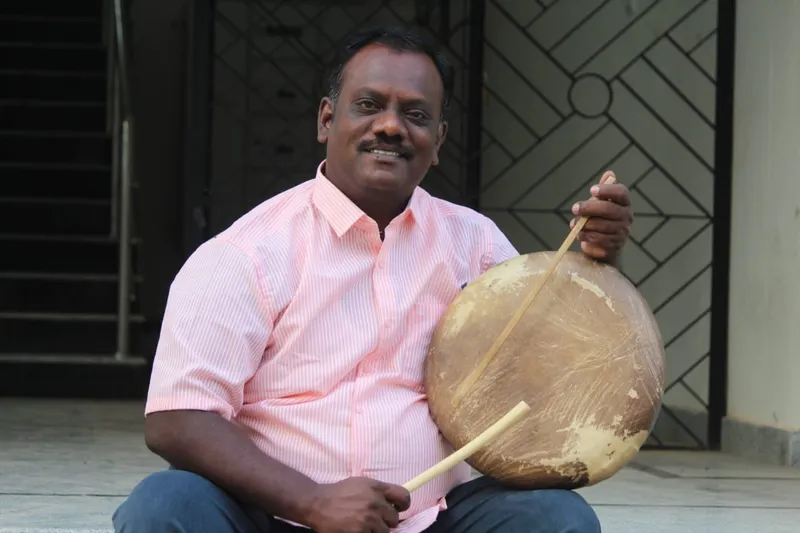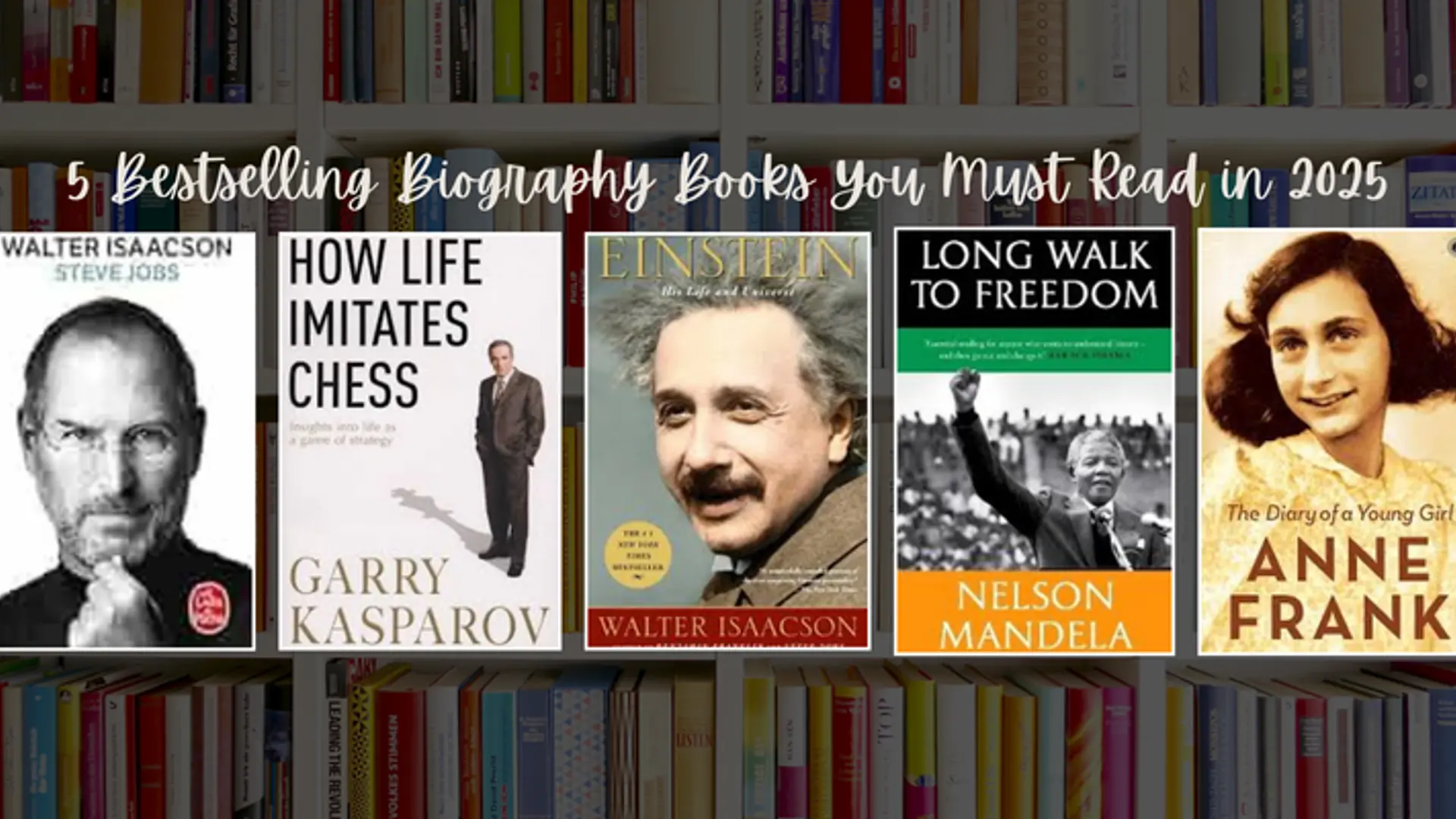Tamil parai artists get international acclaim through Hollywood film Origin
Manimaran and his folk ensemble Buddhar kalai Kuzhu, which he runs with his wife Magizhini, have played the parai for Emmy Awardee Ava DuVernay’s latest film, Origin.
“When you hear the beat of the parai and are instantly jolted to move, it isn’t you, but your ancestors dancing inside you,” says parai artist and teacher Manimaran.
For the last two decades, Manimaran and his wife Magizhini have been striving to get parai—the frame drum native to Tamil Nadu—international acclaim through their group, Buddhar Kalai Kuzhu. Last year, they hit an important milestone in this pursuit when they were invited to play the parai for Emmy Awardee Ava DuVernay’s latest film, Origin.
The couple was introduced to Kristopher Bowers, the music director of Origin, by Zoe Sherinian, a professor of Ethnomusicology at the University of Oklahoma and a longtime student of Manimaran and Magizhini.
Sherinian connected Manimaran, Magizhini and their sons Iniyan and Samaran with Bowers six months ago, when he was working on the post-production of the film.
The sound of the people
Parai was the sound of all the people of this land and their relationship with nature, society, and the world, believes Manimaran.
“There was a time when death, following a long well-lived life was a matter of celebration and the parai was played to resonate that. But as illnesses and social inequalities grew, unnatural, premature deaths became common and the parai, which the Dalits also handcrafted out of cowhide and wood, became a symbol of untouchability,” he says.
The parai finds references as an instrument of royal stature in the Sangam literature—the earliest available Tamil literature, records of which go as far back as the third century BC—and was historically played at weddings, childbirths, temple festivals, and funerals. However, the widening social hierarchies of caste led to the segregation of Paraiyars—the community that generationally mastered the percussion instrument.
In the late 1980s, Dalit activists in Tamil Nadu started protesting against the community being pushed into jobs such as burying dead, manual scavenging, and playing parai. In one such protest in Cuddalore, a young activist named Reddiyur Pandian was shot dead.
This led to a whole generation of youngsters born into this artist community denouncing the art form to save themselves from the stigma and humiliation.
Reclaiming identity
In recent times, activists have turned their traditional folklore and stories around to make the parai a badge of honour and identity. The instrument has evolved as a symbol of resistance and social justice for Dalits, making its way into religious institutions, music, art, and cinema.
Sherinian is a witness to this social change. She spent years studying under the former professor at Tamilnadu Theological Seminary, Rev. James Theophilus Appavoo, who employed the parai as an instrument of glory and worship inside the church, endowing long-oppressed communities with the art forms of their birth and celebrating those roots. Through the course of her two-decade-long work on Tamil folk music, Sherinian authored more than 10 dissertations and a book on the subject titled ‘Tamil Folk Music as Dalit Liberation Theology'.
“When you study its music theory and repertoire, you understand that there is a whole complex system to this art form, and every traditional artist playing the ‘parai’ knows this,” says Sherinian.
“The discourse was that most parai artists only play for death ceremonies. But of the 36 adis I learnt, only three were saavu (death) adis. The rest were all auspicious, such as kalyanam (wedding) adi, kavadi (a folk dance) adi, valaikaapu (baby shower) adi and Maatu Pongal adi. There are more than 60 such patterns,” she says.
Taking parai to the world
Origin is an American biographical drama based on Pulitzer Award-winning journalist Isabel Wilkerson’s book ‘Caste: The Origins of Our Discontents’, which explores racism as an aspect of a caste system.
The book follows Wilkerson as she investigates the shooting of Trayvon Benjamin Martin, an African-American teen from Miami Gardens, Florida in 1997.
“It looks like we’ve come full circle today,” says Magizhini. “For this film, we were asked to play celebratory beats.
"We worked with the music director remotely throughout composition and production. He asked us to play what we usually did and picked the parts that sat well in the film,” says Manimaran.
“We were asked to play what we knew, rather than fit into some reductive mainstream understanding of the instrument, and this felt like the parai was standing its ground as a powerful and seasoned tradition of its own,” he adds.
For close to a decade now, Manimaran and Magizhini have learned the skill of performing and recording from studio space, and they have music directors Santosh Narayanan and AR Rahman —who have been consistently incorporating the parai in their film music work—to thank. The couple has played the parai in Tamil films such as Saarpatta Parambarai, Kaala and Blue Star.
“Years before I was married to Magizhini in 2000, and the Buddhar Kalai Kuzhu was formed at the first Chennai Sanganam (an annual Tamil cultural festival) in 2007, we had been performing as a group across the state. We are fortunate to have been a speck in the resurgence of the instrument and its radicalisation beyond the funeral beats,” says Manimaran.

Manimaran, co-founder of the parai ensemble Buddhar Kalai Kuzhu, has been traveling across the world to teach the parai to youngsters from all caste and religious groups.
Manimaran is keenly observant of the sociocultural upheaval that the widespread patronage of the parai can bring about and therefore takes his role in this movement seriously.
By holding free-of-cost parai workshops for students across Tamil Nadu and Tamil students elsewhere in the world, Manimaran ensures no child is identified with the caste associated with the parai, which may lead to them being outed or facing discrimination.
Simultaneously he works with teachers, parents, and cultural organisers to ensure children and youth from across caste, class and religious identities learn the parai, forming a relationship with the instrument based purely on its raw soundscape and fiery rhythm.
“I see in my experience this way of teaching brings children together for the love of music and storytelling that the parai’s legacy holds. It is the children and youth who can take the instrument to heights greater than its history of oppression,” says Manimaran.
“Finding a place in the history of American cinema has taken us leaps and bounds forward in this mission of ours,” he says.
Edited by Affirunisa Kankudti






